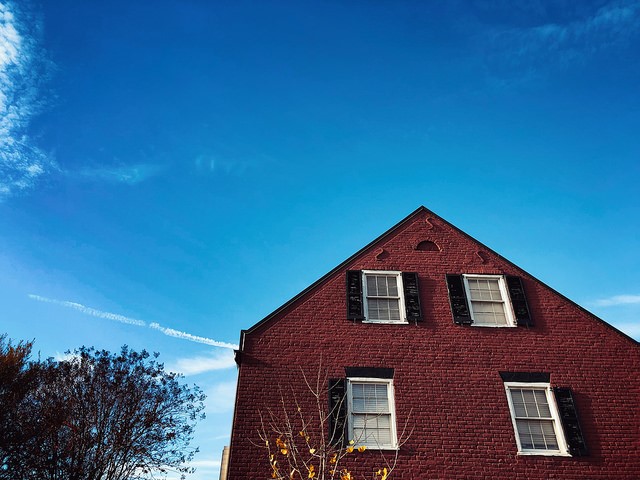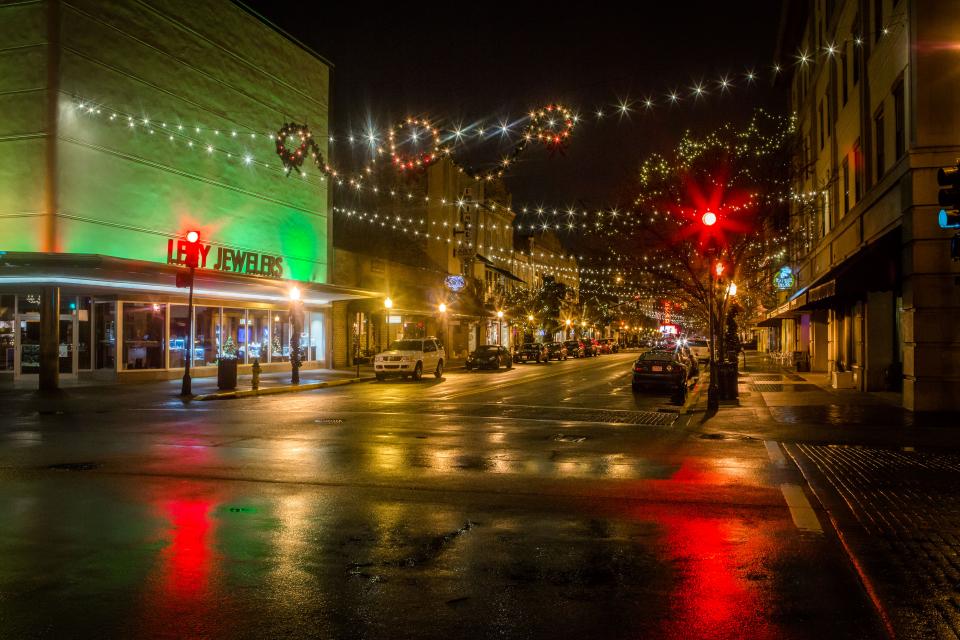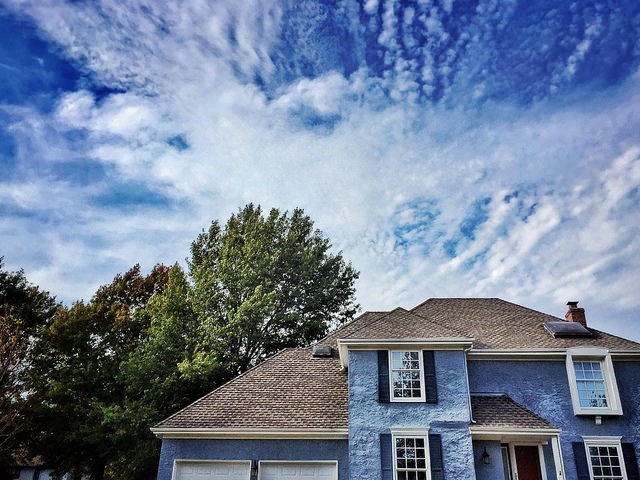Are Home Price Increases Beginning To Slow?
Home prices have been increasing for some time now. Largely this is because, in many markets, there are more interested buyers than there are homes available for sale. Inventory shortages can cause more competition for the homes that are for sale, which leads to spiking prices and decreasing affordability conditions. This, of course, has been a concern for potential home buyers. But, according to new research, there may be reason to believe that the rate at which home prices have been increasing is beginning to slow. For example, the most recent Home Price Index from Black Knight Financial shows the rate of monthly price appreciation declined one third from the month before in September. That was the sixth consecutive month of slowing growth. Also, half of the nation’s 20 largest states and 17 of the biggest metro areas saw home prices fall last month. If this trend continues, it could be encouraging news for home buyers hoping to buy a house this winter or those looking toward a spring home purchase. More here.

Americans Feel Optimistic About Home Buying
An increasing number of Americans say they feel now is a good time to buy a house, according to the most recent Home Purchase Sentiment Index from Fannie Mae. The index – a monthly measure of how consumers feel about real estate, home prices, mortgage rates, job security, and their financial situation – is now nearing its all-time high, reached in September. Doug Duncan, Fannie Mae’s chief economist, says Americans’ perception of the real estate market is improving. “In November, the HPSI rebounded to near its all-time high, returning the index to its gradual upward trend and suggesting fairy stable consumer home-buying attitudes,” Duncan said. “These results are consistent with our expectation that the housing market will continue its modest expansion going forward.” Among respondents, there was a 7 percent increase in participants who said now was a good time to buy a house and a 4 percent increase in the number who feel it’s a good time to sell. More here.

These Savannah Spots Have the Most Festive Decor
There’s something magical about Savannah during the holiday season! Dazzling lights, festive décor and Christmas cheer fill the city from top to bottom. If you can’t get enough of Christmas-themed décor, events and spirit, you’ve got to check out these jolly Savannah spots.

City Market
Savannah’s spirit becomes even more exquisite during the holiday season, and City Market is no exception. Stroll beneath holiday lights, taste sweet treats in City Market shops and find the perfect gifts for your loved ones, all while being serenaded by Christmas carolers.
There are also plenty of events to look forward to during City Market’s holiday season. Children will have the chance to make ornaments, decorate cookies and get Grinched (a tradition of Grinch-inspired hair and makeup!). Kids of all ages can also meet Father Christmas and take a Cinderella carriage tour. All this plus face painting, choir music and more add up to a day of fun the whole family can truly enjoy. Look at City Market’s calendar to learn more.
The Forsyth Park Fountain is certainly beautiful year-round, but it’s even more dazzling at Christmastime. Festive wreaths, bright bows and garland frame the already picturesque fountain. During the holiday season, the Forsyth Park fountain often becomes the location for family Christmas cards and engagement photos. It’s a Christmas lover’s dream come true!

Broughton Street
At Christmastime, the shops, boutiques and restaurants along Broughton Street decorate inside and out. Bright, sparkling lights are streamed from building to building all along Broughton Street creating a picture-perfect backdrop for holiday shoppers.
The festive season, called “Holidays on Broughton,” also offers seasonal events for all ages and interests. From the return of a beloved children’s toy store in a pop-up experience to photos with Santa and musical performances, eventgoers can count on an experience that will prove magical year after year.
Throughout the whimsical holiday event, many of the unique and eclectic shops along Broughton Street will offer extended hours of operation and holiday shopping incentives. It’s surely the most wonderful time of the year on Broughton Street!
By:Larissa Allen
Try these ideas to get organized at home one small step at a time
Mortgage Misconceptions May Keep Buyers Away
Potential home buyers often describe the home buying process as being complicated. And, most likely, a lot of their confusion stems from the financing side of the transaction. A lack of knowledge about what is required and how to proceed can cause otherwise qualified borrowers to become intimidated and even delay their dreams of homeownership. For example, prospective buyers often have misconceptions about down payment requirements, believing they are required to put down much more than is actually necessary. And, though calculating the size of your down payment depends on a number of factors, believing that you can’t buy a house with less than a 20 percent down payment can be enough to convince a potential home buyer that they aren’t yet ready to buy. That’s why it’s important to contact your lender to explore your options before you talk yourself out of buying. Though there is plenty of information available online – and recent research shows the internet is the primary source of information about mortgages – you can’t get an accurate appraisal of your options and price range without the help of a qualified professional. Don’t allow misconceptions to hold you back from buying the home of your dreams. More here.
How Buying A Home Can Help Save You Money
The argument for or against buying a home usually rests, to some extent, on wealth creation. Conventional wisdom says homeowners – through equity and price appreciation – are building wealth, while renters are throwing their money away each month. Of course, there are some notable instances where that basic argument seemed discredited. Take the most recent financial crisis and housing crash, for example. Following the crash, many people began to question the typical arguments in favor of homeownership, as homeowners saw their home values plummet. Now, a new study from Florida Atlantic University, Florida International University, and the University of Wyoming says homeownership offers no financial advantage when compared to renting and investing in a portfolio of stocks and bonds. However, the study’s findings are based on an assumption that renters will use any extra money, not on consumption, but on investing for the future. According to the results, “The analysis showed that households that are likely to not reinvest buy-rent cash differentials should mostly own rather than rent their primary residence as ownership forces them to save.” In other words, you can create wealth while renting, if you’re disciplined and invest wisely. If not, buying is a better deal. More here.

Rising Number Of
Homeowners Are Equity Rich
Get Top Dollar!!
Nearly 60% Of Homes Within Reach of Typical Buyer
Not surprisingly, affordability ranks high among home buyers’ concerns. Rising prices and rumors of future mortgage rate increases have some prospective buyers questioning whether or not they can handle the financial obligations that come along with homeownership. However, new data from the National Association of Home Builders says, in most markets, they can. That’s because, the NAHB’s quarterly measure of affordability found 58.3 percent of new and existing homes sold between the beginning of July and the end of September were affordable to families earning the median income of $68,000. That’s encouraging news for hopeful home shoppers. And, according to Robert Dietz, NAHB’s chief economist, there are a rising number of them hoping to take advantage of conditions while they’re still favorable. “Solid economic growth, along with ongoing quarterly job gains and rising household formations, are fueling housing demand,” Dietz said. “Tight inventories and a forecast of rising mortgage interest rates through 2018 will keep home prices on a gradual upward path and slowly lessen housing affordability in the quarters ahead.” More here.

Despite Price Spike, No Evidence Of Housing Bubble
Along with rising home prices, there has also been increasing concern that the housing market may be entering a bubble. And that’s not surprising, considering the housing crash is still fresh in peoples’ memories. So as home prices reach or exceed previous highs, potential buyers and current homeowners are naturally concerned about the possibility of another housing bubble and crash. According to a recent analysis from Freddie Mac, however, there is a pretty good reason to doubt that today’s price spikes are, in fact, evidence of an emerging bubble. Put simply, one of the primary reasons bubbles form is a perception that home prices will always rise. This causes investors to bid prices up and some mortgage lenders to offer easier credit. In short, a bubble isn’t real. Today’s price increases, on the other hand, are being driven by a lack of for-sale inventory and slower-than-normal new home construction. That means, it is more likely that prices aren’t being driven upward by irrational confidence but, instead, are being driven by an unbalanced market. “The evidence indicates there currently is no house price bubble in the U.S., despite the rapid increase of house prices over the last five years,” Freddie Mac’s chief economist Sean Becketti said. “However, the housing sector is significantly out of balance.” More here.


